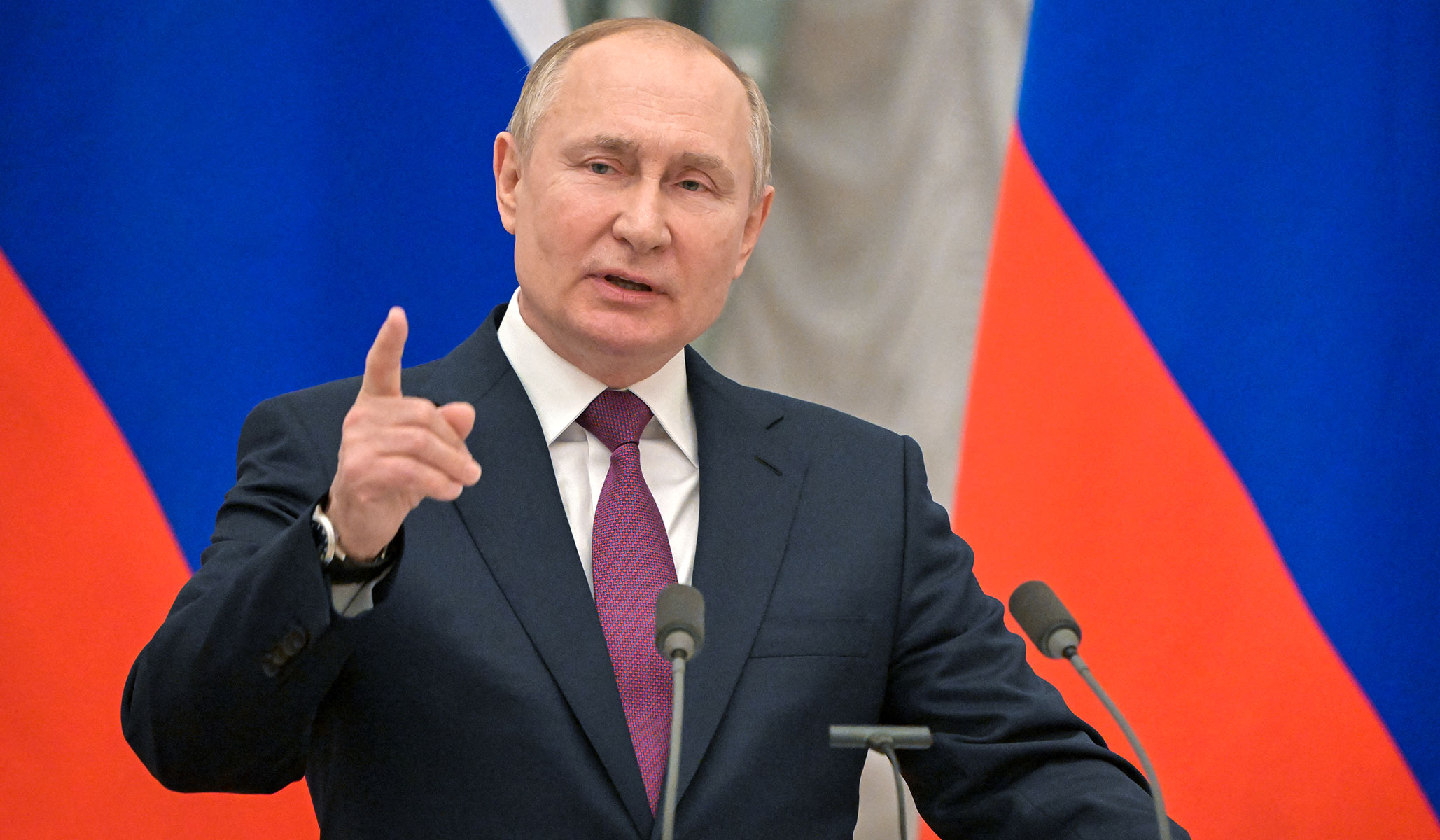The Russian economy is being hammered. Economic sanctions will cause Russia’s GDP to contract by well over 10 percent. The value of its currency is plummeting. At the time of this writing, the ruble is down 47 percent against the dollar relative to one month ago. Interest rates are soaring as the Russian central bank attempts to defend its currency. Those efforts are being thwarted by unprecedented steps taken by Western nations to freeze Russia’s access to its foreign-exchange reserves. Defaults will occur. Counterparty risk has soared. Supply chains will be upended in Russia as importers won’t be able to purchase goods from other countries.
This is the economic equivalent of a shock-and-awe campaign. The display of economic force brought to bear against Russia has been swift and stunning in its effect.
The United States and European nations need to take another step: Sanction Russian oil.
Banning imports of Russian oil — as is being widely discussed in Washington — would cause gas prices in the United States to increase. But the U.S. imports a relatively small share of its oil from Russia, and the effect on domestic gas prices and the Russian economy of an import ban would be small.
The promise of a U.S. import ban is that it could inspire Europe to do the same. Russia would feel a European import ban more acutely, because Europe buys more Russian oil than the U.S. does. European consumers, whose countries import around one-quarter of their oil from Russia, would feel it as well.
But oil is a global commodity, and import bans in the U.S. and Europe would still leave Russia with other customers. Russia would attempt to cut deals with friendly nations to keep its oil revenues flowing.
Sanctioning Russia’s oil exports would be much more effective. Existing SWIFT sanctions prohibit some Russian banks from using the global messaging system used by financial institutions to facilitate transactions. But Russian energy is largely exempt from existing sanctions. Applying SWIFT sanctions to oil transactions would limit Russia’s ability to export the commodity. In addition, the United States should impose sanctions on banks that finance the Russian oil trade, crippling its supply chains and exacerbating logistical challenges.
Russia supplies 11 percent of global oil consumption and 17 percent of global natural-gas consumption. The U.S. and Europe should target oil exports first, and keep sanctions on natural-gas exports in reserve. Russia is responsible for 40 percent of Western Europe’s natural gas consumption — it will be hard enough for those nations to deal with higher fuel prices, let alone the shock from natural-gas sanctions.
A ban on Russian oil exports would substantially increase the global price of oil. U.S. economic growth would take a hit. Economists at Goldman Sachs estimate that a sustained $20 per barrel increase in oil prices would lower U.S. GDP by 0.3 percent and Euro-area GDP by 0.6 percent. It’s unclear how high the price of oil would go. Higher prices would benefit U.S. producers. Whether it would increase longer-term U.S. capacity is an open question.
Consumer prices are currently growing at an annual rate above 7 percent. So-called core inflation — which excludes volatile food and energy prices — is running above 5 percent. If the U.S. sanctions Russian oil exports, higher gas prices would exacerbate the U.S.’s already troubling inflation outlook. This has four implications.
First, Republicans should support President Biden in this effort and avoid criticizing him for higher gas prices. When consumers have to pay more at the pump, Mr. Putin would be to blame, not Mr. Biden — and Republican politicians would have a special responsibility to make that point clear to the public.
If this week Republicans signaled a willingness not to politicize the higher gas prices that would accompany export sanctions, then that would give the White House political space to do what needs to be done.
Second, the President should work with Republicans to pass legislation and change regulations to facilitate greater domestic energy production. The balance Democrats try to strike between climate-risk mitigation and domestic-energy production is out of whack, and the war in Ukraine should give the president political space to correct it.
Third, the president and congressional Democrats would need to follow a simple rule when it comes to inflation: Do no harm. If economic sanctions are put in place, then higher gas prices are another reason that now is not the time for Democrats to pass expensive, deficit-financed social legislation that would contribute to inflationary pressure.
Fourth, the American people need to be asked directly to sacrifice in opposition to Putin, in support of Ukraine, and in support of the ideals that underpin liberalism, including individual liberty, self-government, and national sovereignty.
Oil revenue makes up a large share of Moscow’s budget. It is a key funding source for Putin’s invasion of Ukraine. Slashing Russia’s oil revenue could hasten an end to the conflict. The economic pain facing the West from an export ban could be short-lived.
The sanctions would create a carrot to offer Russia: End the war, and get the oil sector back. Cash for economic stability. Cash for peace.
